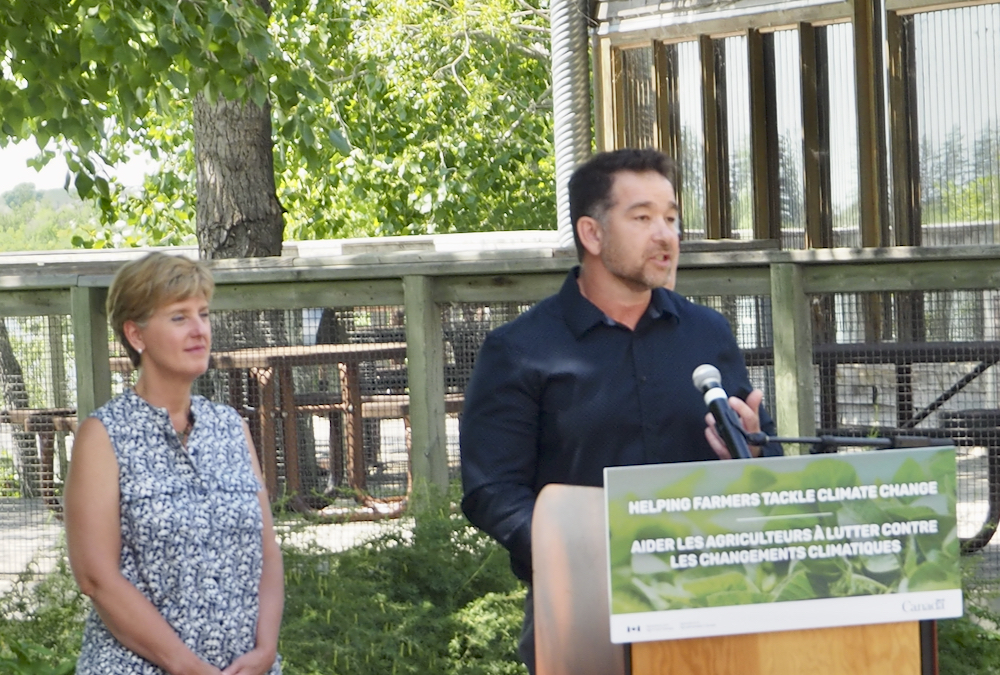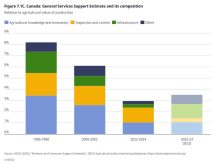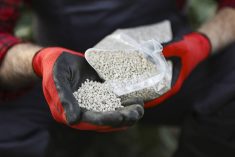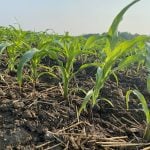HyLife Foods of La Broquerie has previously received a boost from the federal government’s Agricultural Clean Technology (ACT) program, but after the latest round of funding announced earlier in July, it is on a growing list of recipients.
On July 18, federal Agriculture and Agri-Food Minister Marie-Claude Bibeau announced funds for 28 additional projects under the program totalling more than $8.7 million.
Why it matters: More green technology on farms is on the federal government’s checklist as part of its Emissions Reduction Plan.
Read Also

Manitoba Beef Producers targets elk surge, wildlife losses in resolutions
Resolutions at last month’s Manitoba Beef Producers meeting seek help to rein in elk and deer populations, expand fencing supports and improve compensation for wildlife damage.
The sum includes $2.5 million earmarked for Manitoba projects. True North Foods in Carman received just shy of $1.4 million to install a rapid organic converter and rendering system. JDD Farms in Gilbert Plains and Seymour Farms in Manitou received $193,143 and $132,728 respectively to install new grain dryers. Enterprises Louis Balcaen Inc. in La Broquerie received $88,335 for precision agriculture equipment and Rolling Acres Colony Farms in Eden received $762,857 for a new biomass furnace.
“The recent drought and flooding in Manitoba are another reminder that farmers are on the frontlines of climate change,” Bibeau said.
The program covers projects of at least $50,000 and will cover up to half the cost of adopting clean technology. The federal government anticipates that the recently expanded ACT Program will reduce emissions by up to 800,000 tonnes a year as a result of switching to cleaner fuels and decreasing fuel consumption.
“That’s the equivalent of powering close to 200,000 homes a year,” Bibeau said.
One of the previous contributions, $267,000 to HyLife, resulted in a mobile manure separator that reduces both farm cost and greenhouse gas emissions, according to the company.
“Our commitment is to take care of our employees, our customers and our communities, and that is why programs such as Agricultural Clean Technology are vital to the continued success of our industry and to our company,” said Sheldon Stott, senior director of corporate sustainability with HyLife.
The technology made distribution of manure phosphorus more efficient and cost-effective, according to the company.
The equipment “eliminates the need for individual producers to invest millions of dollars on their specific sites,” Stott said.
HyLife partnered with an equipment provider to design the modular, trailer-mounted centrifuge system that can be transported from farm to farm. The system treats manure in earthen lagoons to create a valuable, dry and nutrient-rich fertilizer product, company data indicates.
“This product can be transported and sold easily and effectively into phosphorus-deficient areas of the province, bringing that nutrient where it needs to be,” Stott said. “This is a considerable step forward and an opportunity for livestock producers, not only in the province of Manitoba but throughout Canada and beyond.”
Since March 2022, as part of the federal Emissions Reduction Plan, the federal government has announced more than $1 billion in funding to encourage the adoption of green technology in agriculture.
Future carrot or stick?
Manitoba farmers keeping an eye on farmer protests over climate policies in Europe and Asia may wonder what’s coming when the incentives end and limiting regulations begin.
Bibeau says the hope is that the current policy of incentivizing the agricultural industry to reduce greenhouse gas emissions, as opposed to punishing them for non-compliance, will deliver sufficient results.
“We hope to go far enough with the incentives,” she said.
















